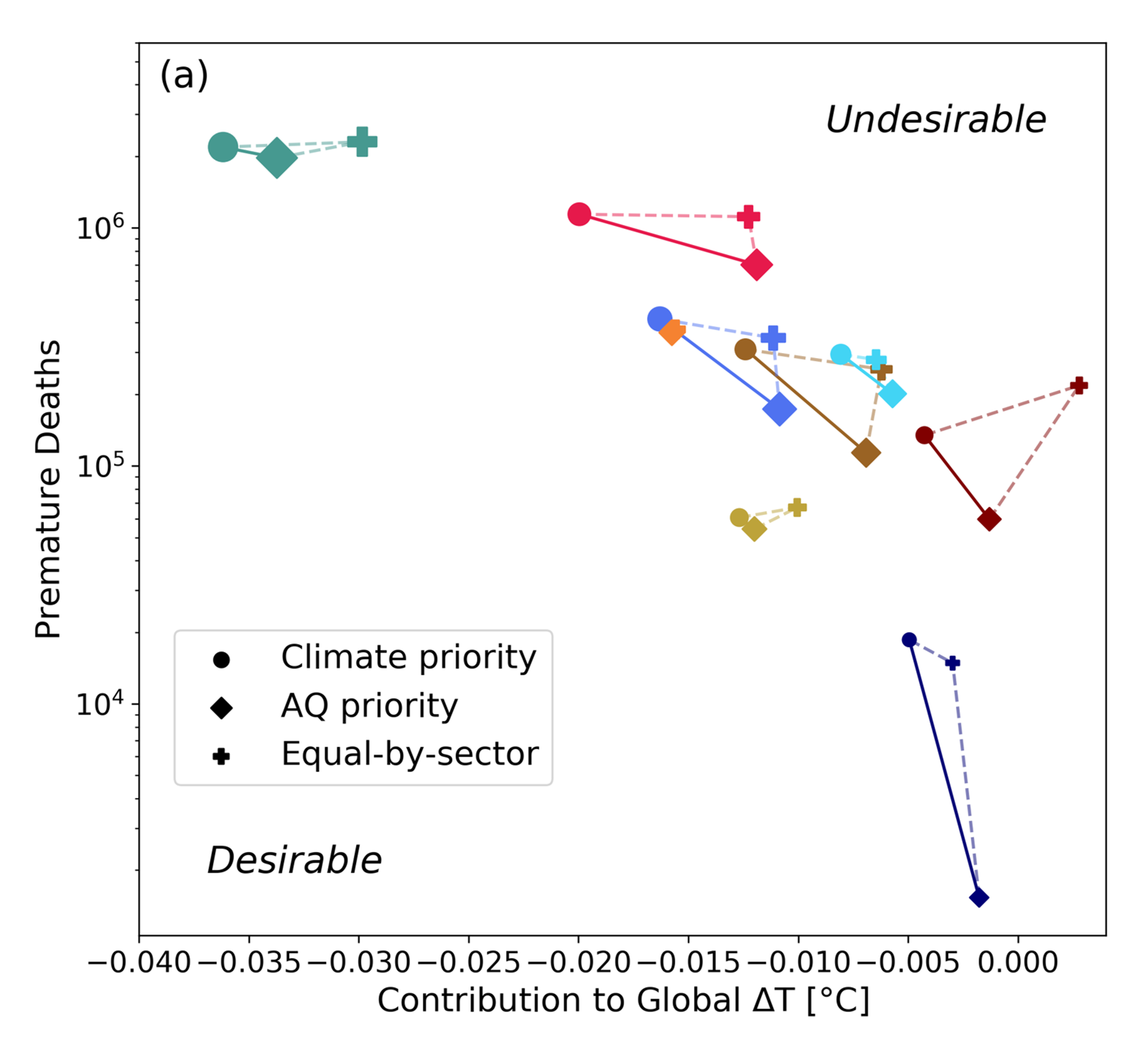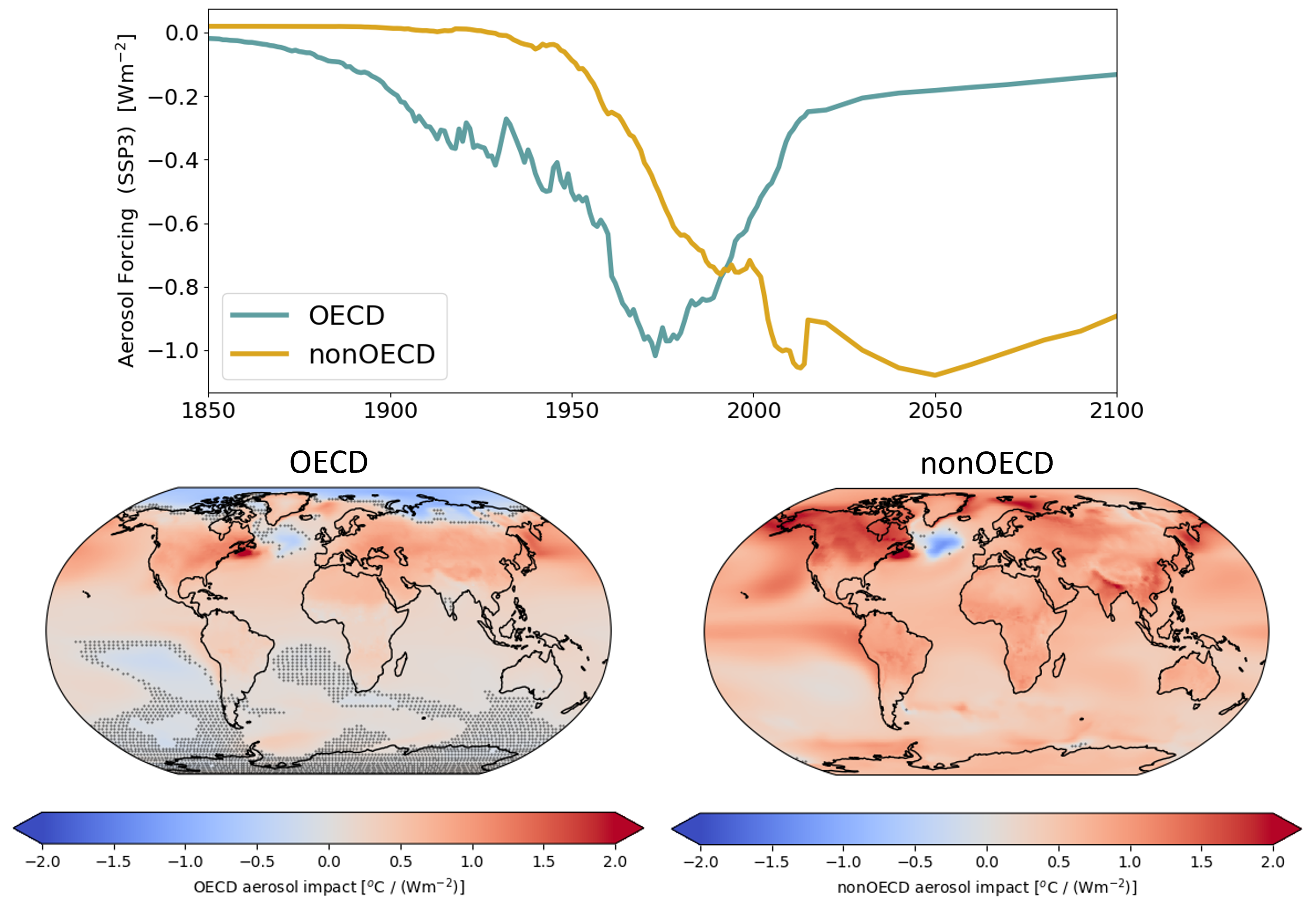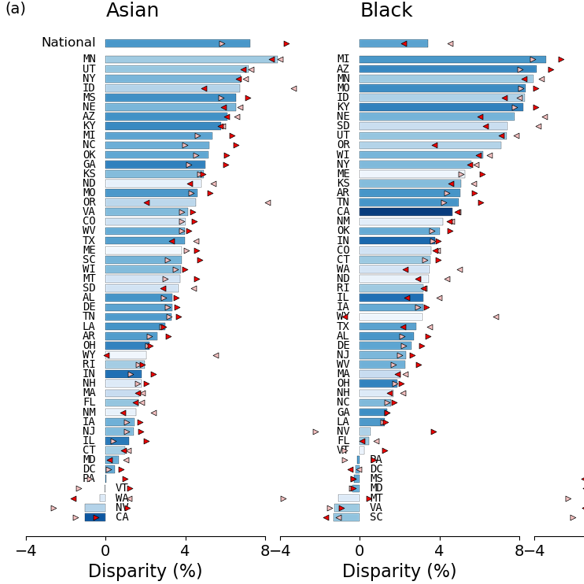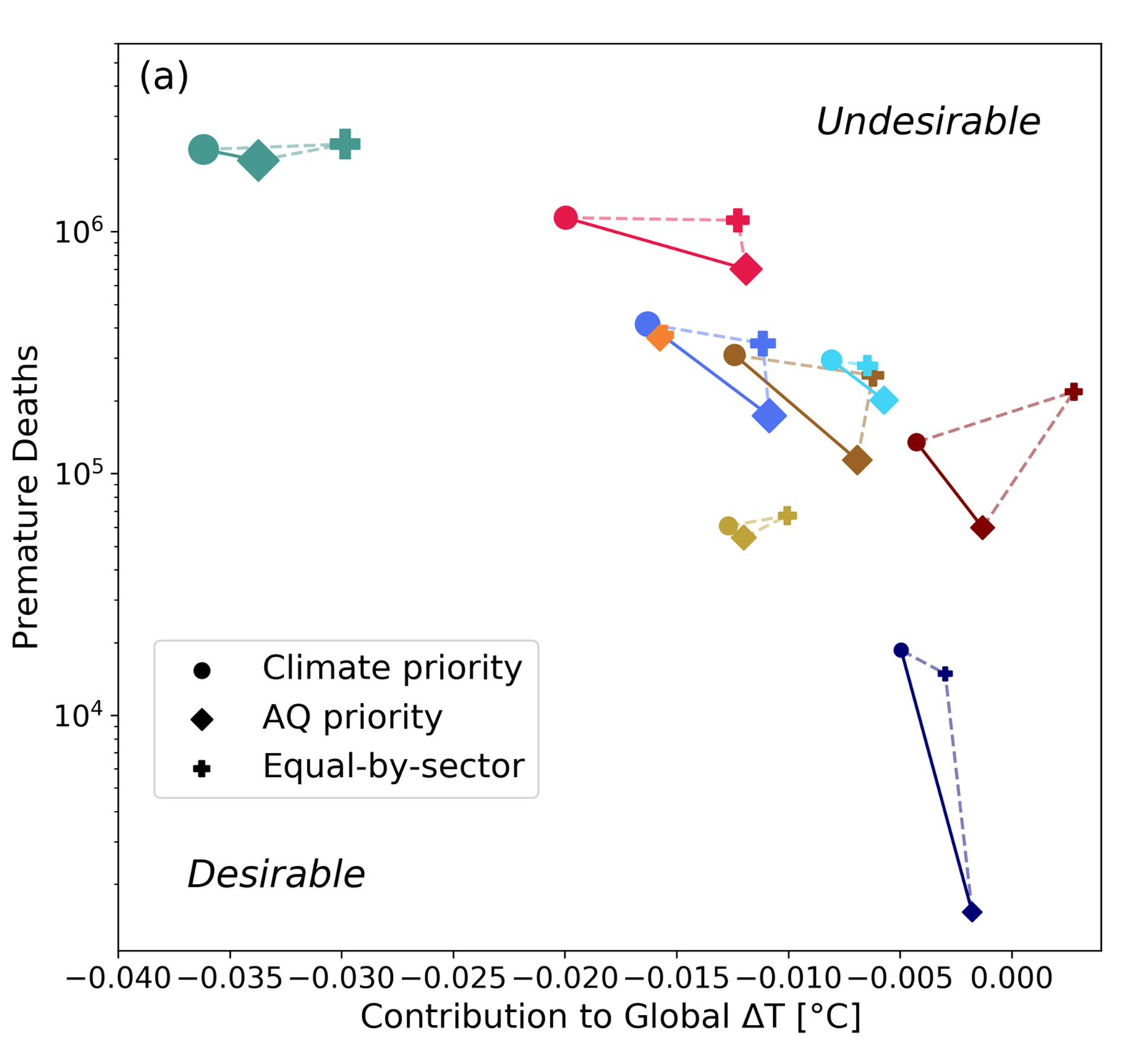Aerosols in climate policy
How aerosols change decisions and outcomes around climate policy
Climate policy will change air pollution because climate pollutants and traditional pollutants are often co-emitted when burning fossil fuels. Cleaner air is an immediate and local benefit of changing emissions, which is fundamentally different from the impacts of climate change that tend to be long-term and spatially diffuse. Changes to air pollution are often not considered when modeling climate policy decisions, even though they come up in local and international policy documents. Furthermore, those particulates (aerosols) have their own climate impacts. A very general way to think about decisions and feedbacks is shown below.

We implemented highly idealized decision criteria that incorporate the health and climate impacts of aerosols in theoretical implementations of countries’ Paris Agreement emission reduction targets. We showed that considering aerosols as part of climate policy can be objectively beneficial in some cases.

We used a similar approach in a US-specific study that explores the equity outcomes of different idealized climate policy implementations. But these studies still do not interactively consider the feedbacks between decisions and outcomes. Modeling those interactions is a job for an integrated assessment model (IAM), which explicity couples human and natural systems. I am currently working on improving one such model and including aerosol health and climate impacts.
In an early attempt to think about the connection between human institutions and distribution of impacts, I used regressions to model the climate impacts of OECD and non-OECD aerosols.

The regional temperature and precipitation changes from GHGs and aerosols cause local impacts that subsequently influence emissions, which creates a feedback. Understanding how human decisions alter these feedbacks is the subject of ongoing work. For example, using a coupled model we can assess how the coupled system reacts to the implementation of loss-and-damage funds that would transfers money between countries.

